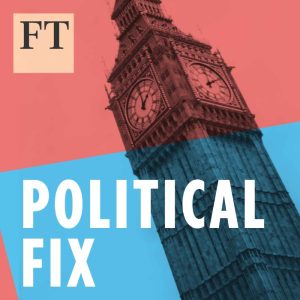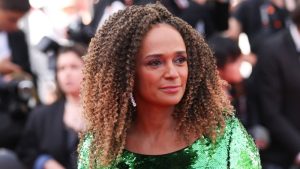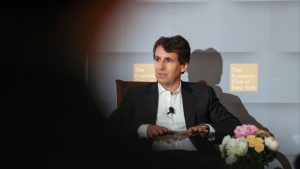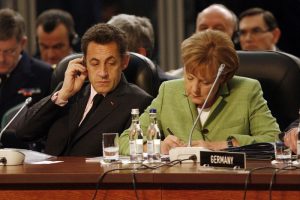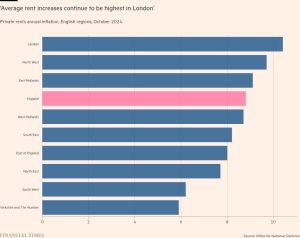‘We have to do this’
After running the Paris marathon during the Olympics, the chair of India’s Tata Sons took a 12-day trekking trip in the Himalayas to give himself time to think. “My biggest strength, if you ask me, is that I reflect a lot. That’s what I’m good at,” says Natarajan Chandrasekaran.
It was “a lot of time, walking all day, looking at the mountains”, he recalls. He uses running and such escapes to ponder strategy, replay business decisions and ask: “Why did this happen?”
The 61-year-old Chandrasekaran, known as Chandra, has a lot to stew over. The holding company of the $365bn Tata Group — which spans sectors from IT, automotive and financial services to consumer products and hospitality — is going through multiple transformations all at once. It is cutting debt and improving profitability, while shifting from traditional businesses, such as steel and power, to new ones including electronics manufacturing and semiconductors. Cleaning up dirtier enterprises by moving towards electric vehicles and renewable energy is another priority, as is offering more online products and embedding artificial intelligence into its internal processes.
“We are trying to get the group prepared for the future,” Chandrasekaran tells the Financial Times in an interview in London. “However painful . . . these are transitions that need to be done.” This includes Tata Steel’s decision to close blast furnaces at the Port Talbot steelworks and cut jobs to move to greener forms of steelmaking.
Chandrasekaran was appointed chair in 2017 following a period of boardroom turmoil that culminated in the ousting of his late predecessor, Cyrus Mistry, who had alleged serious governance issues, which Tata denied. “I told myself not to get overwhelmed,” says Chandrasekaran, as he confronted a company in crisis and pledged to “stop the bleeding” at the group’s highly leveraged companies.
“What I do is important, but how I do it is more important.”
Chandrasekaran, who previously led the IT business Tata Consultancy Services, is the first head of the company who is not related through birth or marriage to its founder, Jamsetji Tata, and the first not from the Parsi community. Since Tata set up in 1868, it has expanded into 30 companies and a huge range of products, from salt and software to luxury Jaguar Land Rover cars and Tetley tea. It will soon assemble Apple iPhones.
“I made sure I never repeated the words ‘we used to do it like this at TCS’,” says Chandrasekaran. “I recognised and wanted everyone to appreciate that I respect that every business is different and operates in different contexts. I shouldn’t be transporting lessons from one business to another blindly. I would have ticked a lot of people off.”
Under his leadership, Tata, which employs 1mn people, has streamlined its operations — selling off and merging businesses — curtailed cross-shareholdings, cut costs and strengthened its financial position. Tata Sons has reported a 10-fold growth in profit after tax since 2016.
Chandrasekaran says he told the heads of Tata businesses that “every company has to be focused on financial fitness . . . don’t worry about growth, fix the fitness. Performance will come.”
Chandrasekaran, who lives in Mumbai with his wife and son, says he hates to talk about himself. Friends and peers say he shuns the ostentatious lifestyles of other tycoons and is humble to a fault. When asked for an assessment of his leadership performance, he deflects and speaks about business metrics and reels off a list he believes shows his approach is working. Among his highlights are a doubling of production at Tata Steel; cutting Tata Motors’ $10bn debt pile to zero, a turnaround at Taj-owner Indian Hotels Company and simplifying defence business Tata Advanced Systems.
“He’s very focused, so he’s able to provide very clear advice [to management teams],” says Sanjiv Bajaj, the billionaire chair of Bajaj Finserv, who participated with Chandrasekaran in the business forum that ran alongside the G20 meetings in India last year. “He’s put the group on a strong track for future growth.”
Chandrasekaran says he has largely relied on intuition to set the direction for Tata and validates his approach with data. He says he would not “do anything differently”, although “not everything goes at the pace . . . you want”. He has been disappointed by the pace of Tata’s shift to sell more digital products to consumers, which “is taking time”. The integration of brands into a single super shopping app “could have been faster”.
Meanwhile, at carrier Air India, which Tata acquired two years ago, Chandrasekaran notes supply chain challenges have hit aircraft deliveries even as losses have narrowed. He hopes the company will be more competitive domestically within a year, and internationally by 2026, once its orders of Airbus A350s and Boeing 787s arrive. It would mark a change in gear for Air India after its reputation has been hit by events including cabin crew strikes and an incident in which a male passenger allegedly urinated on an older woman in business class. Chandrasekaran acknowledged last year that the company had fallen short, which was “a matter of personal anguish”. With a consumer brand such as Tata “you get a lot of love” from the public, he says. “But people also don’t expect anything to go wrong.”
Other failures have included a scandal at TCS, in which senior officials were alleged to have accepted bribes to influence hiring decisions, and, at Tata Steel, the sacking of 38 employees for breaking the company’s code of conduct, three allegedly for sexual misconduct.
Chandrasekaran says that with such a large organisation, such issues are unavoidable. He splits mistakes into two categories: those that happen because of a lack of organisational process or training and are not intentional, and those that occur “when someone cheats, behaves wrongly or where there is negligence or ill intention”. With the former, the company can improve and move on but how the business handles the latter circumstances “is what differentiates a good and bad company”, he says. “I don’t like putting those things under the carpet.”
Some observers say Chandrasekaran, who travels a week a month, is stretched too thin.
Proxy adviser Institutional Shareholder Services has criticised his various chair appointments, saying they represent significant commitments and could “compromise” his ability to give sufficient time to any one company. Chandrasekaran, who balances work and his personal life with a single daily to-do list that emphasises home commitments or professional ones depending on the day, acknowledges the criticism. But he says: “I don’t believe in switching off. Your mind is always working. You just shouldn’t get worked up . . . I always have a smile, no one can make out if I’m going through a tough day.”
People who work for him say Chandrasekaran is not someone who is brought down by negativity and that he encourages staff to “look forward and don’t look back”.
He says he had no choice but to pursue drastic action at Tata: “We can either wait for the next 10, 15, 20 years or you make the transition 1726935267 . . . we have to do this. If we don’t . . . we don’t create a future,” he says.
The recent deal agreed with the UK government is one example. Tata Steel will invest £750mn alongside £500mn of taxpayer funds to build an “electric arc furnace” in Port Talbot. It will provide a more environmentally friendly way of making the commodity, albeit at the expense of 2,500 jobs. Tata, he says, has taken a loss of £4bn-£5bn on the steelworks since it bought them as part of the Corus Group acquisition in 2007 but Chandrasekaran still backs the pursuit of greener products. He says to understand modern supply chains and run a consumer company well, “it’s about finding out what the customer wants and then figuring out how to make it”.
As for his management style, Chandrasekaran says he is less interested in being the one with all the correct answers. He sees himself as the person who asks the right questions, helps management teams formulate strategy and suitable governance structures and find the best people. “I feel all of us should run in the same direction,” he says. He has high standards and wants people to move at his speed but says: “I give space and don’t get into the nitty gritty. I see things slightly broader.
“Who am I to think I know more about any business than the management teams of [Tata’s] respective companies?” he adds.
Chandrasekaran is known to adapt to people who work for him — for example, avoiding calling colleagues who are not early birds, like he is, first thing in the morning. If he has been tough on an employee or had an issue with one of his team, he ensures he is on good terms with them by the end of the day.
“You don’t have to be the one that’s right, you just have to get it right,” he says.
Additional reporting by Sylvia Pfeifer and Kana Inagaki



